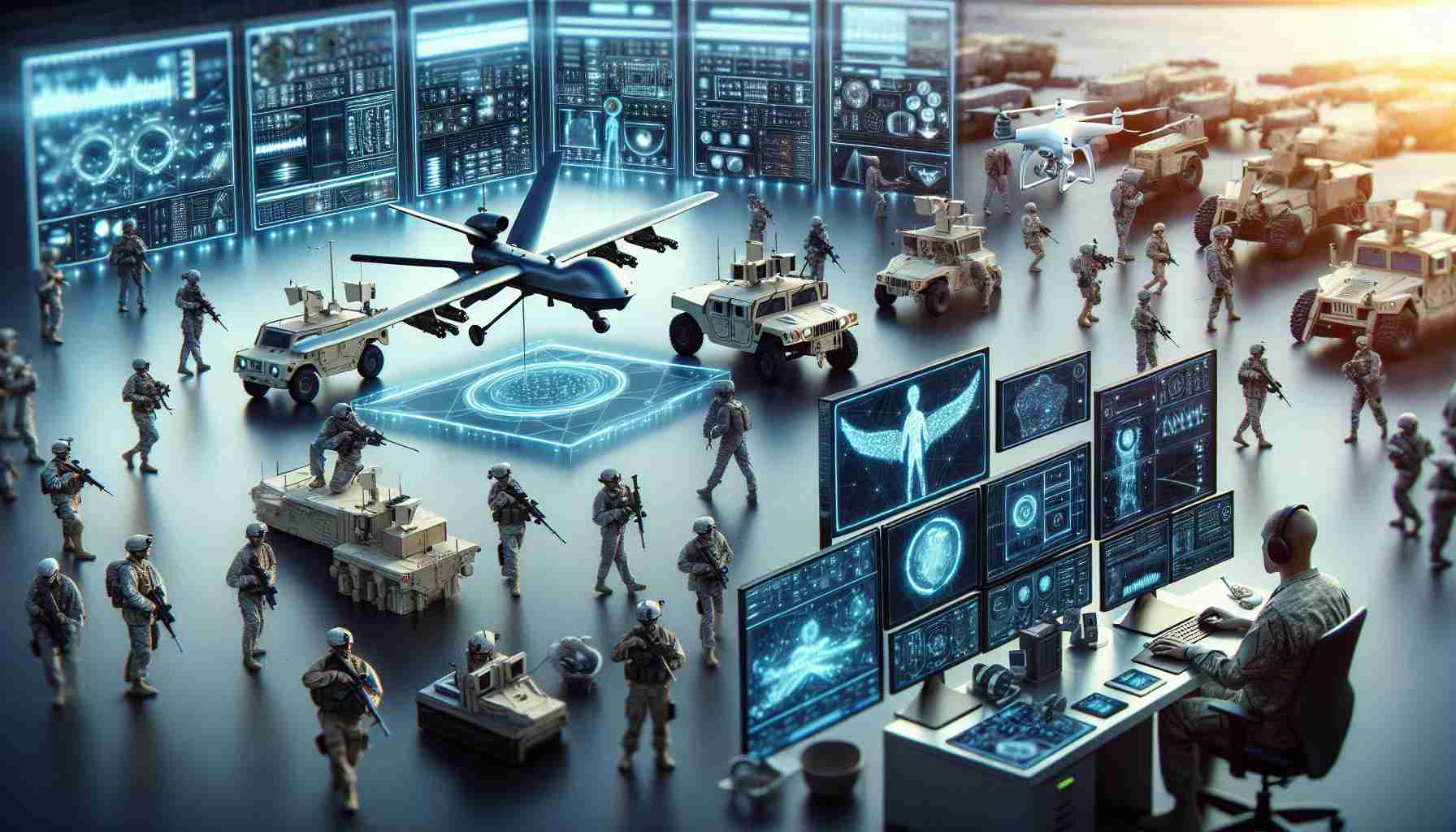Artificial intelligence (AI) is rapidly integrating into our daily lives, reshaping how we work, communicate, and interact with our surroundings. As AI continues its progress, it’s important to consider potential risks and consequences associated with its development. AI has numerous military applications during military offensives, such as AI-driven battle management systems, surveillance, reconnaissance, and intelligence systems. These enable commanders to gain a heightened situational awareness crucial in pinpointing enemy centers of gravity on the battlefield and facilitate the speedy coordination of joint attacks.
Within the last decade, continuous efforts by researchers have led to significant advancements in AI and related technologies—quantum computing, big data, the Internet of Things (IoT), robotics, and autonomous systems—reaching levels beyond experts’ expectations. The rapid evolution of AI has been fueled by factors including significant improvements in software usage and performance, expansion of large-scale databases, and considerable progress in machine learning applications and algorithm development.
Military and Ethical Consistency of Autonomous Robots
The study of autonomous lethal robots, which have parallels with the advent of gunpowder and nuclear weapons, goes beyond enhancing the arsenal. It has the potential to change the identity of those wielding these technologies. Thus, it is vital to explore their consistency with military and ethical standards, adherence to international humanitarian law, and military operational rules to avoid future harm that may extend beyond the battlefield to civilian-populated areas, possibly impacting public health and civil infrastructure.
Experts have predicted that AI will play a substantial role in enhancing both traditional and cutting-edge military capabilities, operationally and tactically. AI operates beyond a mere weapon: it augments military abilities through remote sensing, real-time recognition of variables, maneuverability, and pressured decision-making. Command systems enhanced with AI technology could avoid many pitfalls of traditional strategic decision-making processes, enabling rapid and in some cases, autonomous decision-making based on enriched information—minimizing human error and providing a competitive edge.
As a result, the integration of AI into military fields introduces a novel component to military equations, potentially disrupting security stability and affecting the dynamics of future military escalation and conflict.
AI-Powered Decisions in Warfare
Incorporating AI into warfare is expected to transform the future of armed conflicts and global military balance. AI technologies will augment capabilities such as visual perception, voice and facial recognition, and decision-making through algorithms for independent execution of air, land, and sea operations without human oversight.
Consequently, AI-enhanced systems will expand in tasks like reconnaissance, precision strikes, penetration of advanced multi-layer air defenses affecting their deterrent roles, providing asymmetrical options in maritime force projection within contested zones, and in specific missions including mine laying and removal, data collection from anti-submarine warfare sensor networks, intelligence, surveillance, reconnaissance missions, electronic warfare, and non-combat operations like counter-terrorism, border defense, and precision guidance for missile targeting.
Advantages of AI in Modern Military Operations
1. Enhanced Decision-Making: AI facilitates faster and more accurate decisions by processing vast amounts of data, enabling real-time responses to threats.
2. Force Multiplication: AI can control drones and robots, thus reducing the need for human soldiers and lowering casualties in dangerous operations.
3. Improved Surveillance: AI-driven systems can monitor larger areas with greater accuracy, making it easier to detect and track enemy movements.
4. Precision: AI algorithms contribute to the accuracy of weapon systems, allowing for precise targeting with minimal collateral damage.
5. Cost Efficiency: In the long run, AI systems may reduce the operational costs of various military activities by optimizing logistics and maintenance processes.
Disadvantages and Challenges of AI in Modern Military Operations
1. Lack of Accountability: The deployment of autonomous weapons raises questions about accountability in the event of unlawful acts or errors.
2. Autonomy in Lethal Decision-Making: Granting AI systems the power to make lethal decisions can be ethically problematic and might contravene international laws of warfare.
3. Cybersecurity: AI systems are vulnerable to hacking, which could lead to the hijacking of military assets or the exposure of sensitive data.
4. Arms Race: The development of AI-enabled military technology might lead to a new arms race, potentially destabilizing international security.
5. Technological Malfunctions: AI systems can fail or perform unpredictably, leading to unintended consequences in high-stakes military scenarios.
Key Questions and Answers:
– How might AI affect the principles of warfare?
AI has the potential to change the principles of warfare fundamentally by enabling faster decision-making, intelligence gathering, and precision strikes, altering traditional combat tactics and strategy.
– Can AI-powered military technology be controlled to prevent unintended escalations?
Efforts are ongoing to develop guidelines and control measures for AI in the military; however, ensuring compliance and preventing autonomous systems from escalating conflict remains a complex challenge.
– What are the ethical implications of using AI in military operations?
The ethical implications revolve around the delegation of life-and-death decisions to machines, the potential for increased lethality and dehumanization of warfare, and the societal impact of military AI applications.
Controversies:
The prospect of fully autonomous weapons systems operating without human intervention is highly controversial. It has sparked debates on the moral and ethical dimensions of allowing machines to make decisions about human life. The potential for AI systems to act unpredictably or be manipulated by adversaries also raises serious security concerns. There is an ongoing international discussion about formulating regulations to govern the use of AI in military settings to ensure compliance with international humanitarian law.
For more information on AI and its role in the military, readers can explore the following link:
U.S. Department of Defense

